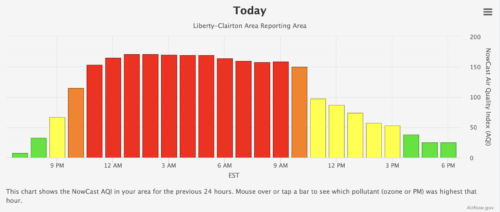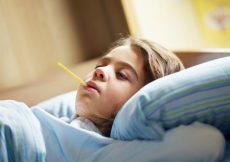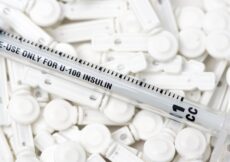December 15th, 2021
Air Quality Index 12/14/21 Liberty-Clairton // Airnow.gov
Some people living and working just a few miles southeast of downtown Pittsburgh found it difficult to breathe yesterday:
An Air Pollution Warning has been issued for the Mon Valley for the remainder of today [12/14] and all of tomorrow [12/15]. The 24-hour PM2.5 standard for the Mon Valley has been exceeded at an official monitoring station in the Mon Valley and is likely to continue.
Children who live in the Mon Valley already have higher rates of asthma compared with the rest of the state and country. What does the warning from Allegheny Alerts mean for them and other local residents trying to enjoy these unseasonably warm and sunny mid-December days?
Young children, the elderly, and those with respiratory problems, such as asthma, emphysema, and bronchitis, are especially vulnerable to the effects of air pollution and should limit outdoor activities during this time.
So the kids, the elderly, and the ones who live with chronic medical conditions are told to stay indoors as much as they can. And what about industries like U.S. Steel, whose coke and steel-making operations are the largest and perhaps most dangerous sources of air pollution in western Pennsylvania?
Companies most significantly contributing to particulate pollution in the Mon Valley region are required to temporarily reduce particulate emissions.
Temperature inversions are common occurrences around here this time of year. When one occurs, a layer of warm air forms a blanket above cooler air at ground level. These meteorological events trap fine particle pollution and vapors close to the ground, especially in local river valleys, preventing dispersion of harmful air toxics and increasing human exposure to them. (Dilution is the solution to pollution? NOT!) Weather forecasters predict more frequent temperature inversions in the future as climate change worsens.
The only solution to air pollution is to stop making so much of it, like Pennsylvanians have been doing since the first commercial coal mine opened on Mount Washington (“Coal Hill”) in the city of Pittsburgh in 1760. A hundred years later, in 1859, Drake drilled his first oil well in Titusville, Crawford County. More recently, the meteoric rise in fracking for shale gas over the last 15 years has become the “best” worst thing to hit PA extraction zones. Coal, oil, gas, and steel have combined to foul the air and poison our waterways, and health-damaging fossil fuel pollution isn’t likely to stop in southwestern Pennsylvania anytime soon.
Next year, Shell’s massive new ethane cracker factory is scheduled to begin operations just over the Allegheny County border, in Monaca, Beaver County. One of the largest petrochemical factories ever built anywhere, this cracker plant will not be producing crunchy and salty snack foods. Instead, it will take fracked gas and convert it into trillions of tiny plastic pellets (or polyethylene “nurdles”) needed for the production of single-use consumer items — food wrappers and shopping bags, soda bottles, food utensils, straws, and other plastic throw-away things that Nature certainly doesn’t need any more of.
Last week, I participated in a virtual community meeting hosted by Beaver County Marcellus Awareness Community (BCMAC). Chrissy Suttles and Dani Fitzgerald reported in Friday’s Beaver County Times that the event “garnered hundreds of registrants seeking tips on emergency response and health protections as Shell Chemicals introduces the Ohio River Valley to a new, unfamiliar industry.”
Prevention is the name of the game for a pediatrician like me, especially before anyone in the neighborhood experiences harmful effects that require medical attention:
Ned Ketyer, a doctor with Physicians for Social Responsibility PA and the SWPA Environmental Health Project, told attendees that emissions from the petrochemical plant have the potential to transform southwestern Pennsylvania into another “cancer alley,” an industrial hub in Louisiana known for its many oil refineries, plastics plants, chemical facilities and, as the name suggests, cancer cases.
Emissions in Potter Township may include nitrogen oxides, or respiratory irritants that contribute to ground-level ozone and can stunt lung growth in infants. Volatile organic compounds such as benzene, which can cause cancer in adults and children, will be emitted from the cracker plant, too, he noted.
Mild exposure to toxic air pollutants can create ear, eyes, nose and throat irritation. Moderate exposure can lead to headaches, and extreme exposures can lead to impaired cognition, difficulty concentrating and confusion, Ketyer said.
“Every cracker plant emits these air toxics in large quantities 24-7. The Shell cracker is no different,” he said. “With all of the fracking and cracking going on here, it’s easy to see why medical providers and local residents are worried that southwestern Pennsylvania will soon become America’s next cancer alley.”
There are a few things doctors will need to know when their patients come to the office or emergency department with health complaints. Keeping a health journal can help track changes to health:
• Write down symptoms like congestion and nosebleeds, headaches, breathing problems, chest pain, abdominal pain, skin rashes, and stress, which is a side effect of pollution exposure.
• Take note of changing environmental conditions like unexplained odors, changes to air and water quality, and local weather conditions. Observe pets for changes in their health. If you see something or smell something, say something!
• Be prepared to report health concerns to the Pennsylvania Department of Health.
• Call 911 or seek immediate emergency care if you or someone else is having a medical emergency.
• For other acute or chronic health symptoms, give your primary care doctor a call and talk it over with them. Health providers may not immediately make the connection between your zip code and your symptoms, so it’s important to let them know where you live and work, where your kids go to school and play, and what symptoms are worrying you.
You can watch the entire program, “Preparing for Petrochemicals Virtual Community Meeting,” including my short presentation on BCMAC here.
Bookmark the Eyes on Shell emergency resource guide here.




































